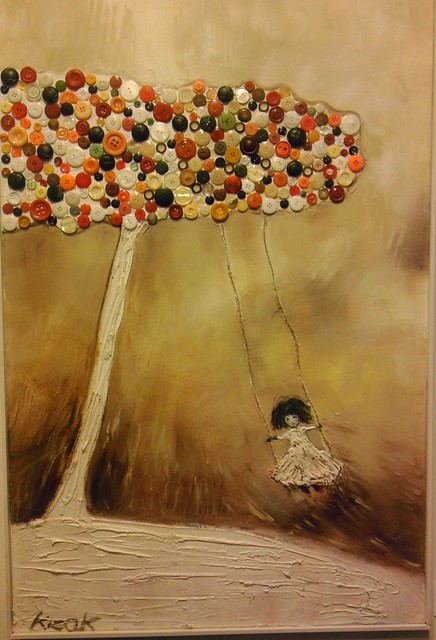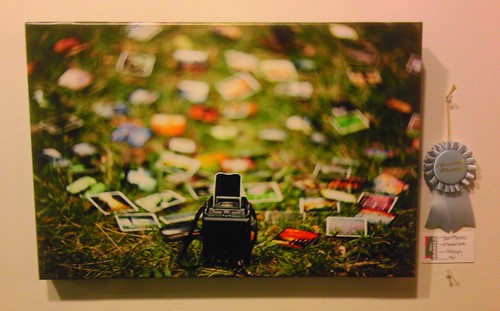
Discussions surrounding the new song by Propaganda, "Precious Puritans," have been interesting. If you haven't picked the album, Excellent, it's free (or buy it to support his work) and it's great. "Precious Puritans" in particular has gripped me and caused me to ask questions about myself, my preaching, my reading, my idolizing, and the list could go on. I've pointed before to Joe Thorn's two posts about "Precious Puritans." They are a nice introduction to Propaganda and some of the issues raised in the song, and includes song audio and the full lyrics.
Some negative responses have started to crop up to the song, and I felt compelled to post some of my thoughts and some response to the thoughts of others.
Owen Strachan (Assistant Professor of Christian Theology and Church History at Boyce College, also teaches at my alma mater The Southern Baptist Theological Seminary) has posted his critique of the song here (or here). Tony Reinke adds a significant comment in agreement to Owen's post. I'll reference some content there in my thoughts here.
Will "Precious Puritans" Stop People From Reading The Puritans?
Owen questions whether the song is dangerous and will lead some people to stop reading the Puritans. He said in the comments, "Critique should not equal demolition." He also says, "If your critique of a Christian who sinned is harsh and uncareful, you’re not living up to the scriptural ideal." I think what Owen does is what he accuses Prop of doing. Owen criticizes Prop without a certain level of care in that he misses the whole point of the song that Prop is doing demolition to all of us and pointing to the God who still uses us in amazing ways. Prop used an artful way to do it (I explain more below) and I assume he was very careful and probably took weeks or months working through this song with friends, producers, etc...knowing exactly what he was saying, how he was saying it, and why. I think he got it right.
In the context of the song, the Puritans are not the point. They are one group, who is very beloved among many in my tribe, including me, which makes them an excellent vehicle for an artist to use to illustrate a larger point. And to miss the forest for the trees is either to misunderstand the artist or to be exactly the person the artist hopes to speak to, one who makes the Puritans too precious. Again, Prop isn't doing "demolition" of the Puritans, but of us all. And that means we are all unquotable, yet all quotable because of Christ.
So does the song tell us not to read the Puritans, even accidentally? Not at all! In fact, it should help those who have made too much of the Puritans to read them better, and quote them more wisely. Though the history of the Puritans isn't new to me concerning slavery, this song has made me think of how to quote them better to those with skin unlike mine, with a history and heritage unlike mine. Why wouldn't we want that?
If you come away from "Precious Puritans" with an "I'm never reading them!" view, you missed the whole point by thinking you are better than them. That point is rejected in the song. And when people miss the point, it's better to teach them about art, to show them what Propaganda is doing, and to point to the lines that make his point clear rather than tell Prop he did it wrong. He didn't. My attempt at explaining the art is below.
Does Propaganda Strongly Qualify "Precious Puritans" On Joe Thorn's Blog?
Owen has said a couple times that Propaganda strongly qualifies his song on Joe Thorn's blog. That is to say Owen thinks he is trying to soften his point because he was too harsh in the song. I don't know why else Owen could mean by saying he strongly qualifies on the blog, as if we don't read the blog we can't understand Prop isn't anti-Puritans. But on Joe's blog Prop was answering questions, showing his approach to how and why he made the song. I heard the song at least a dozen times before I read Prop's answers on the blog and he told me nothing new concerning the song. I saw (and felt!) the "bait and switch" in the song. It's obvious the Puritans are secondary to his point in the song. I recognized that he was speaking to fact that I can romanticize the past and my heroes. All points Prop made at the blog, and all apparent in the song. Prop isn't qualifying his own words, but helping those who don't have ears to hear. He isn't softening the message of the song. Let me illustrate.
When my family goes to the monthly art exhibit at the Starline Gallery, I will stand in front of a piece of art with the kids and explain what I see. Often they don't and can't see what I see. They are learning to see. And if I have built up an eye for something and have insight as to what the artist is doing, I'll share it with them so they will see it too. In doing that, I'm not making the art more gentle, but helping my children to see it truly. That's all Prop did, and to classify it as a strong qualification is to say the artist even admits he was too strong. Prop's strength was intentional, needed, and useful in delivering his message (as I show in the next section). Owen has this wrong.
How Do We See "Precious Puritans" As Art?
Propaganda uses the angry poet approach to the Puritans to make the historical points (which are true) and to offer up conundrums that are legit (how can we quote slave owners at my church with African Americans in attendance?). The music, the lyrics, all the way to the "step away" line are angry, escalating, poignant, and exactly how some have spoken about the Puritans. My kids (public schoolers) have resonated with the song because that's how their teachers speak about the Puritans in school!
But the POINT of the song is made clear at the end. It's not sorta clear, it's clear as a bell: "God really does use crooked sticks to make straight lines," and the crooked sticks include the Puritans, Propaganda, you, and me. So let's not idolize [as Prop tweeted today: "I'm just sayin don't treat folks like they're inerrant"], which would be to make them too precious. They are deeply flawed at best, and so am I.
Prop uses the angry, condemning street poet to illustrate his whole point which is not angry, but humbling and grace-filled. And it all hinges on two words: "step away." Follow the song/lyrics and you will see that the anger turns to reflection and self-realization of how awful we all are, and it starts at the point he says "step away." The realities of the flaws of some of the Puritans is put on display, but instead of continuing to rail against them Prop says "step away," which I assume means step back and take a bigger view. [As I edit what I wrote Wednesday to post today, I noticed Prop said on Twitter this morning: "Step away just means look at the big picture."] Step away doesn't mean step away from reading or benefiting from or quoting the Puritans. The context of the song is what makes his point. Look at the lines just before and after (emphasis mine)...
Don’t pedestal these people, your precious puritans partners purchased people.
Why would you quote them?
Step away.
Think of the congregation that quotes you. Are you inerrant?
Trust me I know the feeling.
It’s the same feeling I get when people quote me.
Like, if you only knew!
I get it. But I don’t get it.
It's anger --> step away --> "think" --> "Are you inerrant?" --> "I get it. But I don't get it." That's the beautiful progression from an artist who knows how to provoke us so that we are open to a larger truth about ourselves (and everyone else!).
Have You Missed The Point?
If you've missed the point of "Precious Puritans," maybe it's because they are too precious to you. Something is wrong when we are more concerned about the Puritans not being read because someone says true things about them than in understanding a cultural perspective in which the Puritans, when quoted, are hard to stomach because of their sin. Propaganda gave us a new set of eyes, and for that I'm thankful.
But AGAIN, it's a bait and switch! It's art! And he tells you to "step away" and look at the bigger picture. You might have missed that because you have reacted defensively, but it's there and it's clear. He tempers what someone might think is too strong and makes it strong against all of us! If you miss that, you miss it all.
If you've missed the point of "Precious Puritans" because you need a hand understanding it as art, it's ok. I've missed the point of a lot of art in my life. Understanding good art isn't easy. I've benefited from artists and art patrons who have opened my eyes to see art. A lot of the time I still miss it, but I'm learning.
Start the song again. Allow Prop to play the role of angry poet, to move you to tears as you consider the history of a group of brilliant people who have blessed you so much, to move you to frustration when you realize there are people still repulsed by this part of history, as we should be. And feel his anger and say with him, "How come the things the Holy Spirit showed them in the valley of vision didn’t compel them to knock on they neighbors door and say, 'You can’t own people!'?" And in the middle of that mood and that moment, let him tell you to "step away" and look at the bigger picture. You can't have that anger at the Puritans and not have it at yourself. You aren't any better. For God to use any of us, these crooked sticks, is amazing.
And don't miss the music. Feel the pace. Identify the sounds. And then feel each of them in their place. Remarkable. A real work of art. A real work of truth. Let it change you.
----------
10.10.12 Update: Check out Thomas Kidd's post, "Slavery, Historical Heroes, and "Precious Puritans." Thomas is an historian at Baylor and is currently writing a bio of George Whitefield.























